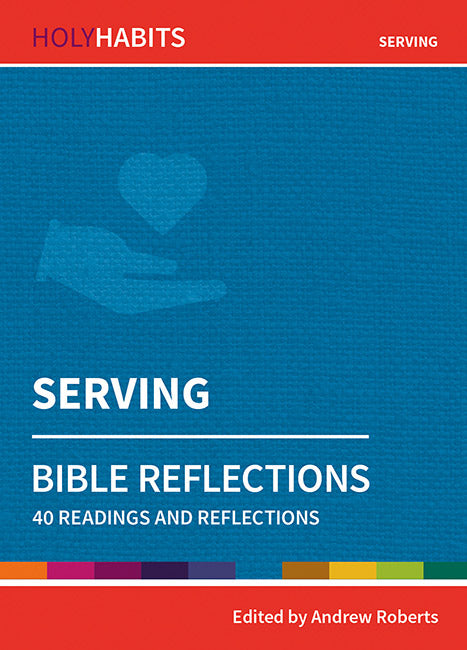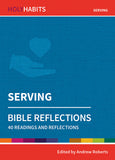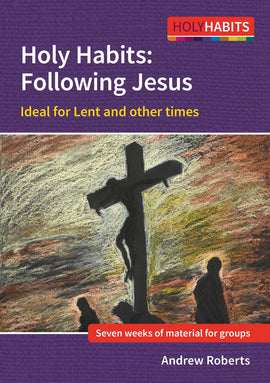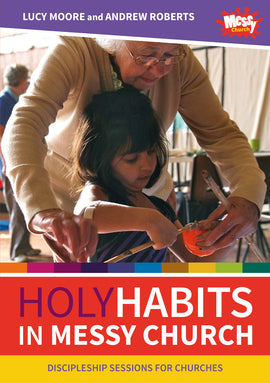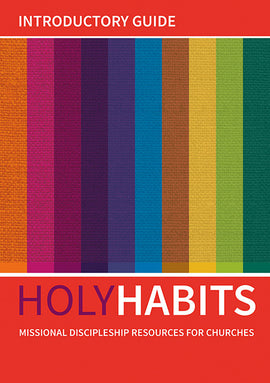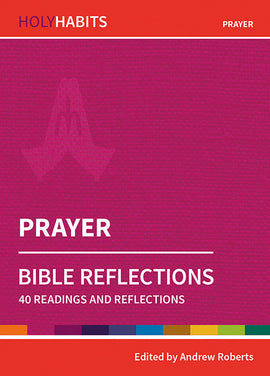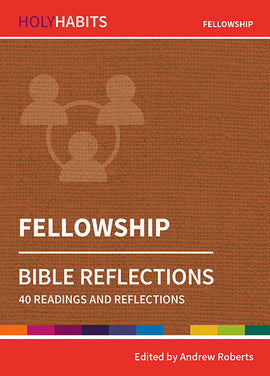Holy Habits Bible Reflections: Serving: 40 readings and reflections
Resourcing your Holy Habits discipleship journey
Jesus himself came as one who served, and our calling as followers of Jesus is to proclaim the gospel by living on earth as if in heaven. Every act of love, justice and peace is a taste of how God's world is to be. We live this calling personally in our daily work and in our local communities.
| Title | Holy Habits Bible Reflections: Serving: 40 readings and reflections |
| Edited by | Andrew Roberts , Tony Horsfall, Ian Cowley, Sally Welch, Neil Johnson |
| ISBN | |
| Description | Jesus himself came as one who served, and our calling as followers of Jesus is to proclaim the gospel by living on earth as if in heaven. Every act of love, justice and peace is a taste of how God's world is to be. We live this calling personally in our daily work and in our local communities. Holy Habits is an adventure in Christian discipleship. Inspired by Luke’s model of church found in Acts 2:42–47, it identifies ten habits and encourages the development of a way of life formed by them. The habits are: Biblical Teaching, Fellowship, Breaking Bread, Prayer, Sharing Resources, Serving, Eating Together, Gladness and Generosity, Worship, and Making More Disciples. These Bible reading notes have been developed to help churches and individuals explore the Holy Habits through prayerful engagement with the Bible and live them out in whole-life, missional discipleship. |
| Details |
|
Jesus himself came as one who served, and our calling as followers of Jesus is to proclaim the gospel by living on earth as if in heaven. Every act of love, justice and peace is a taste of how God's world is to be. We live this calling personally in our daily work and in our local communities.
Holy Habits is an adventure in Christian discipleship. Inspired by Luke’s model of church found in Acts 2:42–47, it identifies ten habits and encourages the development of a way of life formed by them.
The habits are: Biblical Teaching, Fellowship, Breaking Bread, Prayer, Sharing Resources, Serving, Eating Together, Gladness and Generosity, Worship, and Making More Disciples.
These Bible reading notes have been developed to help churches and individuals explore the Holy Habits through prayerful engagement with the Bible and live them out in whole-life, missional discipleship.
Andrew Roberts is a husband, father, minister, writer and speaker. He is the author of the book Holy Habits (Malcolm Down Publishing, 2016) and co-editor of the BRF Holy Habits resource booklets. He was previously Director of Training for Fresh Expressions.
Tony Horsfall
Ian Cowley
Sally Welch
Neil Johnson
Church Times 04.12.20. Review by Catherine Pickford
(See also: What's in the Bible (for me)?; Holy Habits in Messy Church and Holy Habits Group Studies Serving: Leader’s guide)
All four of these books seek, in different ways, to help their readers to weave “holy habits”, such as generosity, servanthood, worship, and discipleship, deeper into their daily lives.
What’s in the Bible (For Me)? explores the theme of journey in 50 short sections. Each has a Bible reading, a reflection, a question, and a challenge or thought. The deceptively simple format covers a great deal of ground, from the reader’s personal faith journey with God to the social-justice themes of homelessness, the plight of asylum seekers, and the Church’s mission to the poorest in our society. In this little book, Moore connects Bible passages with issues in our modern world and asks what it means to be on a journey with Jesus and how this changes the way Christians live.
Holy Habits in Messy Church is my favourite type of Messy Church book, one with plenty of practical sessions. As part of the introduction, one co-author, Andrew Roberts, offers the analogy of Lego: the maker ‘might follow the booklet once, but then they throw it away and create all sorts of wonderful things.' One of the great strengths of Messy Church is its creators’ commitment to giving it away, and letting churches make it their own. Holy Habits in Messy Church encourages exactly that. There are 11 sessions around holy habit themes, including gladness and generosity, serving, and worship, with a short Bible reading and a story, and then a selection of craft ideas to mix and match.
The last quarter of the book is dedicated to ‘messy vintage’, which is Messy Church for older people. Each of the 11 sessions contains a Bible reading, a single activity, some questions for discussion, a prayer, and a song suggestion. They resemble a hybrid between a Bible study and a prayer station and could be easily adapted for mixed groups of adults and children, or incorporated into a larger act of worship.
Service is prominent in the national consciousness at present, as we celebrate and thank God for key workers, whose acts of service are necessary to our survival. These last two titles reflect on the nature of service as a holy habit, and how a willingness to serve may become embedded in the Christian’s daily life.
Holy Habits Bible Reflections: Serving is one of a series of ten books designed to be used daily over an eight-week period by an individual or group. It offers a two-page spread per day, with a Bible reading, reflection, and prayer. The format is simple and effective, and the four authors complement one another with clear voices and different styles.
Holy Habits Group Studies: Serving is Bible-study material designed to support churches in offering service through mission, discipleship, and social action. The four authors move deftly from the theoretical to the practical, and encourage the group to wrestle with the question of how faith affects the way we live.
As a parish priest, I would want to think carefully about how to use this book. The group is likely to come up with action points that are suggestions for the whole church. They will need a way of presenting their ideas to the church, perhaps through a slot in the PCC meeting. Another idea would be to use part of this study material at the PCC meeting itself to generate an action plan for the whole church.
Taken together, these four books challenge their readers, in different ways, to mould their lives to be more like that of Jesus by adopting holy habits so as to be of service to others as individuals and as a church.
Reviewed by the Ven. Catherine Pickford, Archdeacon of Northolt, London.

